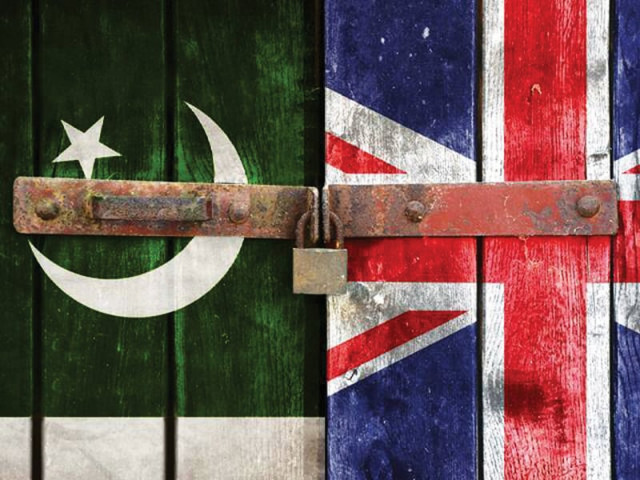UK working to increase FDI in Pakistan
Deputy HC says regulations, legal framework crucial when making investment decisions

Deputy HC says regulations, legal framework crucial when making investment decisions. creative commons
“We plan to have long-term mutual benefits through trade and investments,” she said in an interview with The Express Tribune.
Governments of both Pakistan and the UK are trying to increase bilateral trade, but trade and investment numbers have not reached desired targets.
Currently, bilateral trade is close to $2 billion, which is heavily in favour of Pakistan. The two countries targeted to push trade to $4 billion in 2015, but slowdown in global economy mainly due to record low oil prices hit both economies in recent years.
Pakistan experiences uptick in FDI during April
In 2017, Pakistan has become a $300-billion economy after achieving 5.3% economic growth, the highest in a decade. However, its exports have declined more than 20% from the peak and it desperately needs FDI to create new jobs.
Pakistan received $2.41 billion in FDI in fiscal year 2017, up 5% compared to the previous year, but much lower than the record high of $5.4 billion received in fiscal year 2008.
FDI from leading western economies has been on the decline in Pakistan for the past few years and the UK is no exception. FDI coming from the UK fell to just $69 million in FY17, down 54% from $151 million in the previous year.
Talking about UK’s declining investment in Pakistan, the deputy high commissioner said, “it would be interesting to see if the UK’s FDI is declining generally (in other countries as well) or is it specific to Pakistan. I would be surprised if it would be just Pakistan.”
Despite a slow improvement in bilateral trade, Lewis believes the two countries can increase trade ties due to the inherent potential that has not been tapped yet.
For instance, she said, British companies generally do not know that the situation in terms of regulations has improved in Pakistan and it is easy to do business here than it used to be.
When representatives of British companies come here for the first time, they desire to come again to find out right partners for businesses.
About 120 British companies – many of them world renowned – operate in Pakistan in different sectors like consumer goods, banking, energy, pharmaceutical, education, etc.
Tesco Plc – UK’s largest and world’s third largest retailer in terms of turnover – in February 2017 partnered with Alpha Supermarkets to launch its food and non-food products in Pakistan.
Photo competition celebrates Pak-UK shared heritage
Currently, Tesco is not investing in Pakistan, but its local partners say it may enter the market if its experience goes well.
Lewis believes Tesco can come to Pakistan independently due to its fast growing retail market, growing middle class and the overall size of population.
Speaking about major concerns of UK investors, she said regulations and legal framework came on top when new investors looked towards Pakistan as an investment destination.
“Finding a right partner is also very important, there are some new UK companies that are entering Pakistan because they have partnered with their partners of choice,” she added.
The immediate challenge for both the countries is to maintain the current trade volume in the wake of the UK’s departure from the European Union (EU), also known as Brexit.
The UK has already assured Pakistan that it would provide the same trade benefits that Pakistan currently enjoys under the Generalised System of Preferences (GSP) Plus in the EU.
Within EU, about 25% of Pakistan’s exports go to the UK, so it is a very important market.
“Our first priority is to maintain current trade access to Pakistan after Brexit,” Department for International Trade Deputy Director Trade Matthew Lister commented.
“Once we succeeded in maintaining the current trade volumes, we will enhance our relationship even further.”
The writer is a staff correspondent
Published in The Express Tribune, July 24th, 2017.
Like Business on Facebook, follow @TribuneBiz on Twitter to stay informed and join in the conversation.



















COMMENTS
Comments are moderated and generally will be posted if they are on-topic and not abusive.
For more information, please see our Comments FAQ